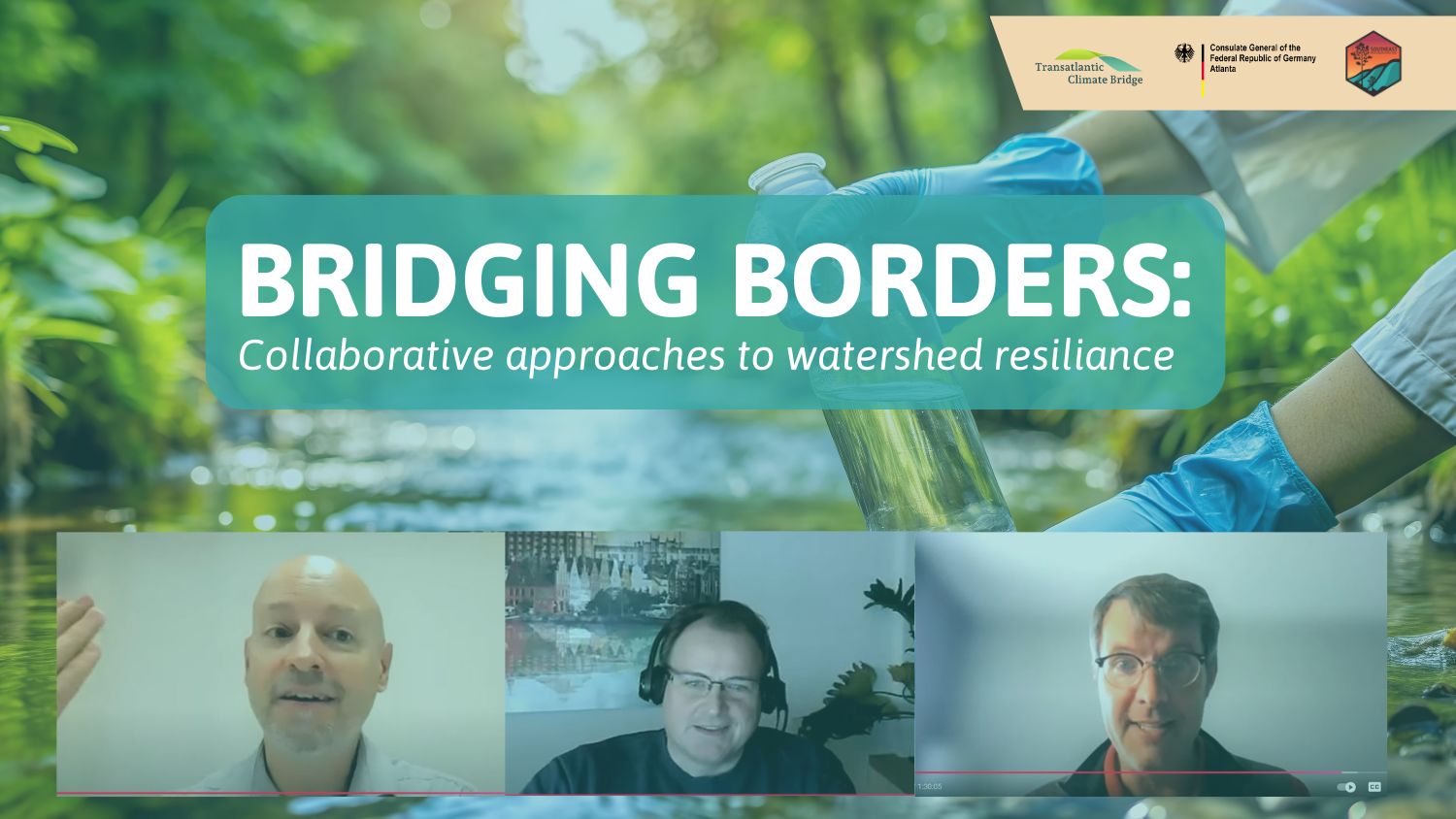Reflections on the Bridging Borders Seminar

The following is a guest post by 2024-2025 Global Change Research Fellow, Halina Pyzdrowski.
The 2024 Global Change Seminar, held in coordination with the Transatlantic Climate Bridge Project, was moderated by Global Change Research Fellow Kurt Naquin, with planning support from Ally Brown, Asumi Saito, Henley Sartin, Rachel Smith, and Halina Pyzdrowski.
Bridging the gap between research and practice is one of the most pressing challenges of global change. In our recent seminar, three distinguished panelists–Andrew Fox, Ansgar Leefkin, and Bill Hunt–addressed this challenge head-on, discussing strategies for watershed resilience and effective collaboration across disciplines, regions, and scales.
Andrew Fox, a professor in landscape architecture and environmental planning at NC State University, co-directs the Coastal Dynamics Design Lab (CDDL). The CDDL supports small, rural, and under-resourced communities across North Carolina to build resilience to flooding through a place-based, community-led approach that emphasizes social and generational ties to the land. A key component of their work includes developing “Floodprints” – actionable financial and strategic frameworks for flood resilience.
As a case study, Fox highlighted the Floodprint co-produced with the town of Pollocksville, NC, which secured over two million in grant/matching dollars for flood mitigation and community revitalization within one year. He also emphasized the importance of building long-term relationships with communities that are rooted in trust.
Following Fox’s presentation, Ansgar Leefken presented the Concept for Conventional Marine Munition Remediation in the German and Baltic Sea (CONMAR) project. Leefken is the Chair of the Department of Marine Engineering at the University of Rostock in Germany and a researcher for the CONMAR project. The project holistically evaluates the ecological risks of discarded munitions on marine environments.
His team mapped five areas in the North Sea for munition locations, using autonomous underwater vehicles to conduct geophysical, chemical, benthic, and toxicological analyses. They found correlations between munition concentrations and benthic organism populations, as well as harmful interactions between TNT and oxidative stress in aquatic species. Leefken underscored several methods for stakeholder engagement, including parliamentary events, media outreach, and the distribution of fact sheets to demystify the project for policymakers and the public.
Bill Hunt concluded with a presentation focusing on the appropriate design, installation, and monitoring of stormwater control measures. Hunt is an engineer, Extension specialist, and Distinguished University Professor of Biological and Agricultural Engineering at NC State University. His work evaluates infrastructure designed to withstand storm events, which are increasingly unreliable due to shifting rainfall patterns.
Hunt advocated for restricting floodplain development and dedicating vulnerable areas to recreation by highlighting North Carolina’s vulnerability to extreme weather. He also discussed the need for updated design standards for stormwater infrastructure based on the most recent climate data.
The seminar concluded with an engaging Q&A session. Panelists shared strategies for transdisciplinary collaboration, effective scientific communication, and actionable research. Together, the panelists agreed that climate resilience relies not just on technical solutions, but also on fostering trust, transparency, and sustained local engagement.
Watch the recording:
- Categories:
